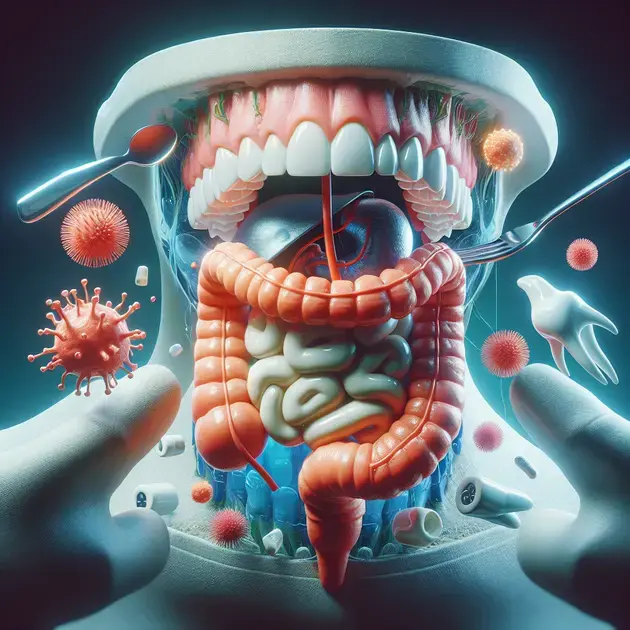Bad breath, also known as halitosis, is a common and embarrassing issue that many people face on a daily basis. Whether it’s caused by poor oral hygiene, certain foods, or an underlying health condition, dealing with bad breath can be a challenge for anyone.
However, there is hope! In this blog post, we will uncover the truth about bad breath and provide you with effective strategies to combat it. From proper brushing techniques to the best foods to eat, we’ve got you covered when it comes to freshening up your breath and boosting your confidence.

Understanding the Root Causes of Bad Breath
Bad breath, also known as halitosis, can be caused by various factors such as poor oral hygiene, gum disease, dry mouth, and certain medical conditions. Understanding the root causes of bad breath is essential in order to effectively combat this issue and improve oral health.
One of the main causes of bad breath is the buildup of bacteria in the mouth, especially on the tongue. These bacteria can produce foul-smelling compounds that contribute to halitosis. To combat this, it’s important to practice good oral hygiene by brushing your teeth at least twice a day and cleaning your tongue with a tongue scraper. Using a mouthwash that kills bacteria can also help eliminate bad breath.
Another common cause of bad breath is dry mouth, which can be caused by medications, mouth breathing, or salivary gland problems. Saliva plays a crucial role in cleaning the mouth and neutralizing acids, so a dry mouth can lead to the accumulation of bacteria and bad breath. To combat dry mouth, you can try using sugar-free gum or lozenges to stimulate saliva production, as well as staying hydrated by drinking plenty of water throughout the day.
In some cases, bad breath may be a sign of an underlying medical condition such as sinus infections, respiratory tract infections, or gastrointestinal issues. If you have persistent bad breath despite practicing good oral hygiene, it’s important to consult a healthcare professional to address any potential underlying health problems.
Overall, understanding the root causes of bad breath and taking proper steps to address them can help improve oral health and boost confidence in your daily interactions.
Effective Strategies for Combating Bad Breath
Combatting bad breath requires a multi-faceted approach that focuses on improving oral hygiene, targeting the root causes of halitosis, and incorporating lifestyle changes that promote fresh breath. By following these effective strategies, you can effectively combat bad breath and maintain long-lasting oral health.
Step 1: Practice Good Oral Hygiene
Brush your teeth at least twice a day with a fluoride toothpaste and floss daily to remove food particles and plaque that can contribute to bad breath. In addition to brushing and flossing, don’t forget to clean your tongue with a tongue scraper to remove bacteria buildup.
Step 2: Stay Hydrated
Drink plenty of water throughout the day to help stimulate saliva production and wash away food particles and bacteria in the mouth. Dry mouth can contribute to bad breath, so staying hydrated is key to combating halitosis.
Step 3: Watch Your Diet
Avoid foods and drinks that are known to cause bad breath, such as garlic, onions, and alcohol. Instead, opt for fresh fruits and vegetables that can help freshen your breath and promote overall oral health.
Step 4: Use Breath Freshening Products
In addition to practicing good oral hygiene, you can incorporate breath freshening products such as mouthwash, chewing gum, or breath mints to help mask bad breath and kill bacteria in the mouth.
Step 5: Regular Dental Check-ups
Visit your dentist regularly for professional cleanings and check-ups to ensure that your oral health is in good condition. Your dentist can identify any underlying issues that may be causing bad breath and provide guidance on how to address them effectively.
Boosting Confidence with Fresh Breath
Fresh breath is not only essential for good oral hygiene but also plays a significant role in boosting confidence in social and professional interactions. By following simple tips and incorporating fresh breath habits into your daily routine, you can enhance your self-esteem and feel more confident in your daily interactions.
Start Your Day with Oral Care
Begin your day by practicing good oral hygiene, including brushing your teeth, cleaning your tongue, and using mouthwash to freshen your breath. This routine will help start your day on a fresh note and boost your confidence from the get-go.
Carry Breath Freshening Products
Keep breath freshening products such as chewing gum, breath mints, or breath spray in your bag or pocket for quick touch-ups throughout the day. These products can help mask bad breath and keep your mouth feeling fresh and clean.
Stay Hydrated
Drink water regularly to help maintain saliva production and keep your mouth hydrated. Dry mouth can lead to bad breath, so staying hydrated is key to promoting fresh breath and boosting your confidence.
Avoid Foods That Cause Bad Breath
Be mindful of your diet and avoid foods and drinks that are known to cause bad breath, such as garlic, onions, and coffee. Instead, opt for fresh fruits and vegetables that can help freshen your breath and promote a healthier mouth environment.
Smile Confidently
Your smile is one of your best assets, so don’t be afraid to show it off confidently. By maintaining fresh breath and good oral hygiene habits, you can feel more confident in your smile and overall appearance.

**Uncovering the Link Between Gut Health and Bad Breath**
Gut Health and Its Impact on Bad Breath
Gut health plays a significant role in overall well-being, with research suggesting a strong connection between the gut microbiome and oral health. Imbalances in the gut flora can lead to an overgrowth of harmful bacteria, which can contribute to oral odor, commonly known as bad breath.
Studies have shown that conditions such as small intestinal bacterial overgrowth (SIBO) and digestive issues can manifest in symptoms like halitosis. When the digestive system is not functioning optimally, it can affect the body’s ability to break down food effectively, leading to the release of volatile sulfur compounds that cause bad breath.
By maintaining a healthy gut through a balanced diet rich in fiber, probiotics, and prebiotics, individuals can support the growth of beneficial bacteria and reduce the prevalence of harmful microbes. This, in turn, can help improve digestion, minimize oral odor, and promote overall oral health.
Furthermore, staying hydrated, avoiding excessive alcohol consumption, and practicing good oral hygiene can also aid in preventing gut-related halitosis. Addressing underlying gut issues through proper nutrition and lifestyle habits can lead to fresher breath and improved well-being.
The Role of Gut-Brain Axis in Halitosis
The gut-brain axis, a bidirectional communication system between the gut and the brain, has emerged as a crucial factor in understanding the connection between gut health and bad breath. Stress, anxiety, and other psychological factors can impact the gut microbiota, leading to dysbiosis and potential oral health issues.
Chronic stress can trigger inflammatory responses in the gut, disrupting the balance of gut bacteria and promoting conditions that contribute to halitosis. Additionally, stress-induced changes in saliva production and composition can further exacerbate oral odor, creating a vicious cycle that affects both gut health and self-esteem.
Practicing stress-reducing techniques such as mindfulness meditation, deep breathing exercises, and regular physical activity can help mitigate the impact of stress on the gut-brain axis and improve overall gut health. By addressing psychological factors that influence gut function, individuals can work towards reducing the occurrence of bad breath and enhancing their quality of life.
Overall, recognizing the intricate relationship between the gut, brain, and oral health is essential in uncovering the link between gut health and bad breath. By adopting holistic approaches to wellness that prioritize both gut and psychological well-being, individuals can take proactive steps towards combating halitosis and promoting a healthier mouth and gut.
**
Conclusion
**
Understanding the crucial connection between gut health and bad breath is essential for promoting overall well-being. Research highlights the significant role of the gut microbiome in oral health, emphasizing how imbalances in gut flora can lead to the development of halitosis.
By maintaining a healthy gut through a well-rounded diet rich in fiber, probiotics, and prebiotics, individuals can support the growth of beneficial bacteria and reduce harmful microbes. This balanced approach not only improves digestion but also helps minimize oral odor, ultimately enhancing overall oral health.
Moreover, recognizing the impact of the gut-brain axis sheds light on how stress and psychological factors can influence gut health and contribute to bad breath. Implementing stress-reducing techniques like mindfulness meditation and regular physical activity can mitigate these effects, leading to fresher breath and improved quality of life.



